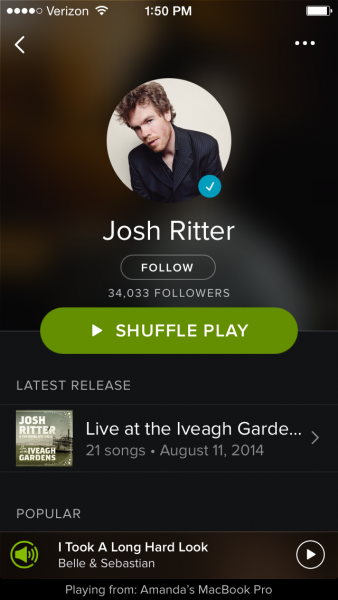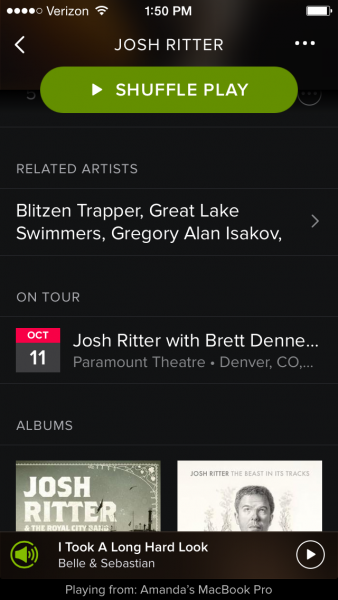It’s the start of the concert season, which is essentially the gym in January. There’s a run on PR firms in the fall, because artists–rightfully so–are deciding, this is the year I bump things up to the next level. Once the season starts rolling along, the focus–also rightfully so–goes back to art-making and performances, but in this moment, everyone seems to have relating publicly on the brain.
Classical music publicity is a…let’s say “niche” to be generous…industry: I think there are probably about 20 firms in the US. Combine that with it being expensive (all these Flame Diner deliveries aren’t going to pay for themselves), and with the fact that most publicists won’t be able to sign clients who don’t have managers, and then with the added fun bonus round that the competition for media real estate is for real…and we have a bit of a problem on our hands.
If you’re creating, you want audiences. No one ever became famous who didn’t want to be, and if something in you needs to put art into the world to change this place, you need witnesses and participants. So what can be done without a PR person to position your work in the best possible way?
That’s right, folks: it’s time for a list.
You know this, but, Have a Website.
I popped in to my friend’s music industry class to talk about social media earlier this week, and a student asked if not having a social media presence would be a disadvantage to her: would managers not be interested, and then, were she to be signed, would her manager have a more difficult time booking her if she didn’t have Facebook/Twitter/Instagram/Tumblr/a blog/a podcast/that-thing-I-totally-missed (Vine?)/that-thing-I-saw-on-Twitter-yesterday (Ello?)/that-thing-that-hasn’t-yet-been-invented (feel free to share in the comments and then we can share in the profits!). The honest answer is yes, probably not having any of these outlets would make things more challenging. But if you have neither time nor desire to do any of them well, then you’re better off not having them at all. A website, though, is non-negotiable. There has to be an easily accessible hub for your concert and project schedule, a way to get in touch with you, and a place that you control to hear what you/your work looks and sounds like.
If you’ve got it, flaunt it tactfully.
I’m sure I “Tweet too much,” but I’m sorry, there are just a lot of cute baby animal photos out there and if I don’t spread them around, who will? I think we’ve gone from Facebook etc. being this personal thing, to Facebook being this Advertising Thing, and now we’ve swung back to artists being scared to say anything about upcoming shows on personal social media because of the abusers – come to my show, buy my album, fund my Kickstarter – one million times a day. But look: people are signing up for your feeds because they like something about you. If mentioning a performance or an album release and encouraging your fake Internet friends to tell their fake Internet friends results in some unfollows, then those weren’t the people who were going to come to your shows or buy your record anyway. Think about what annoys you, don’t do that, but do use your outlets for promotion. It’s there, it’s free, and it’s the most direct public relations there is.
Use Spotify / “but you don’t have to take my word for it.”
I wrote a couple months ago about how Spotify should be used as a promotional tool: no use pouting about it, it’s not going anywhere. The Fan is the thing you want: ~A Fan is Forever~. So if someone listens to your music (yes, for free) on Spotify, likes it (that’s your job! make good art!), goes to a concert, wants to meet you after, buys a CD and maybe even a tshirt, has you sign the CD, meets you, comes again to the next concert with different friends…rinse and repeat. You just made–let’s safely say 2x but really more like 5x–more money than you would if they had just purchased an album in a vacuum at a store. You should use streaming sites like Spotify to promote your live shows and your merchandise. On Spotify, you can sign up for a Spotify VIP account. From there, you can create a Songkick, so your upcoming dates show up on Spotify. I’m listening for free, but oh, there’s that person in my city – I’d see that.
Talk to the press like a real person.
You’re based in a city, and you know there are…let’s say ten…critics, radio personalities, and general tastemakers who support classical music. If you’re an artist or you run an ensemble and don’t have a freelance publicist or a publicist on staff, just write to the critic like a normal person; email is easily responded to and ignored, so you’re not really interrupting their day too much. Lord Google will show you the way (journalists often have their email addresses in their Twitter bios or on their personal websites, if there’s no way to find the information on the outlet’s site). Introduce yourself, say what you’re doing in this wide world, and ask if you can include him or her on your newsletter or draw their attention to upcoming concerts. Ask how far in advance they would need your information to consider it for a listing. Before you write them, for the love of all the is holy, do your research: don’t ask if they might review your album if they don’t review albums. Again – The Internet Will Help You. Follow the writers on Facebook and Twitter to get a sense of what they like to cover, how they cover it (review or preview) and with what frequency they cover things.
Have a good eye or pay someone for theirs.
I would spend my pennies (and I did, lo those many years ago when I opened up shop) for a great website and top materials long before I would pay for a publicist. We all know what good advertising looks like, because it’s all around us. If you find a web designer, graphic designer, or videographer you like, have him or her (hopefully hourly, to save on costs) look at all of your materials – everything from the website to the group logo to the html mailer template you use for your newsletters, down to your email signature. Dress for the career you’re going to have, as it were. Similarly, about a year into doing this I sorted out that, despite having a fairly good grasp on ye olde English language, I needed a copy editor (I haven’t had her look at blog posts yet, so, no judgement). A copy editor can make sure your in-house style guide is in tact, and deal with the opus numbers, because I mean…?
Focus on the parts of The Business that you’re good at and get help with the ones you’re not.
I never turned in my time sheets at my high school job. It’s not like I didn’t need the money (those Dunkin’ Donuts french vanilla iced coffees weren’t going to buy themselves), but I just had some kind of block against it. When I started this business, my dad told me to hire an accountant. “But I can’t afford an accountant.” His point was that if I didn’t, I would never bill clients, never keep track of what money was coming in, and consequently the business would be finished before it began. And he was right, so I did. I have colleagues, though, who I know personally do the invoicing because that helps them keep things clear in their minds: it’s just a personality difference. So maybe you can design your own website, but you have no idea how to do contracts. Or maybe you’re great at getting gigs and terrible at promoting them. Or you’re an ace at raising money, but not accounting for it. We’re a DIY culture, so no one is going to be thrown by you doing you’re own ____. In fact, a lot of presenters like developing ideas with artists directly, and artists and journalists are Tweeting at each other all the time. Donors, too, want a personal connection. But really take an honest look at what you can and can’t do, and find a person or people–maybe they’re hourly, maybe they’re an intern, maybe they’re an ensemble member–to supplement what you can’t do. This ingrained idea that every artist needs to have a team doing the usual things, even if they’re playing two dates a year, needs to go.


